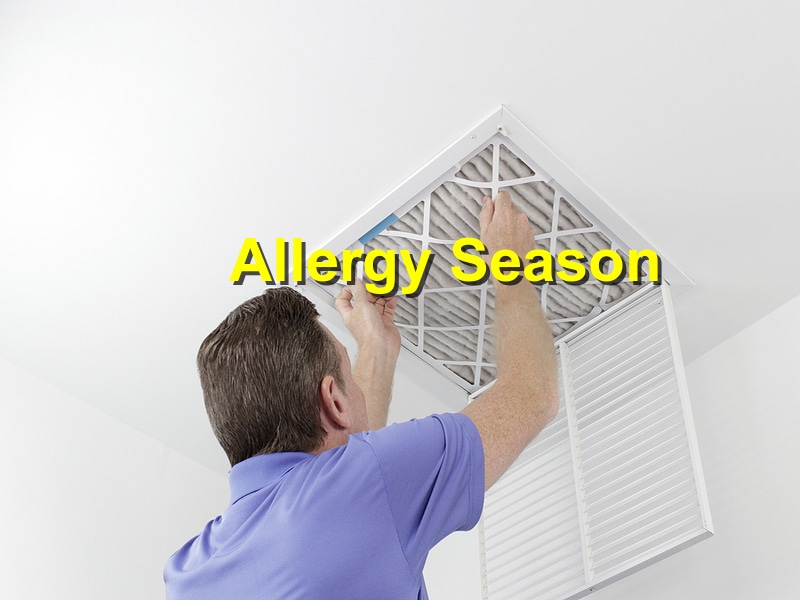Prepare your HVAC system for allergy season with these essential tips. Discover how to improve indoor air quality, reduce allergens, and maintain optimal HVAC performance to ensure a healthy and comfortable home environment:
- Replace Air Filters: Start allergy season with clean air filters to trap allergens such as pollen, dust, and pet dander. Replace disposable filters every 1-3 months, or clean and reuse washable filters according to manufacturer instructions. Clean filters ensure efficient airflow and prevent allergens from circulating throughout your home.
- Schedule HVAC Maintenance: Schedule a professional HVAC maintenance service before allergy season to ensure your system operates efficiently and effectively. A qualified technician can inspect and clean components, check refrigerant levels, lubricate moving parts, and address any issues that may impact indoor air quality or system performance.
- Seal Ductwork and Ventilation: Inspect ductwork and ventilation systems for leaks, gaps, or damage that could allow allergens to enter your home. Seal any leaks with duct tape or mastic sealant to prevent air infiltration and improve indoor air quality. Consider installing air purifiers or UV germicidal lights to further reduce airborne allergens.
- Clean Indoor Air Vents and Registers: Remove dust and debris from indoor air vents and registers to prevent allergens from circulating throughout your home. Use a vacuum with a brush attachment or damp cloth to clean vents and registers thoroughly. Consider investing in professional duct cleaning services for a more thorough clean.
- Control Humidity Levels: Maintain optimal humidity levels in your home to prevent mold growth and reduce allergens. Use a dehumidifier to remove excess moisture in damp areas such as basements and bathrooms, and ensure proper ventilation in high-humidity areas to improve indoor air quality and comfort.
- Invest in Air Purification: Consider installing air purifiers or filtration systems to remove allergens and contaminants from your indoor air. HEPA (High-Efficiency Particulate Air) filters can capture airborne particles as small as 0.3 microns, including pollen, mold spores, and pet dander, providing relief for allergy sufferers.
- Keep Outdoor Units Clean: Keep outdoor HVAC units clean and free of debris to maintain optimal performance and efficiency. Trim vegetation and remove leaves, grass clippings, and other debris from around the unit to ensure adequate airflow. Schedule professional HVAC maintenance to clean coils and inspect outdoor components.
By following these tips to prepare your HVAC system for allergy season, you can improve indoor air quality, reduce allergens, and create a healthier and more comfortable home environment for you and your family. Take proactive steps to maintain your HVAC system and minimize allergy symptoms, ensuring a breath of fresh air all season long.
References: Chancey&Reynolds, TomHoffman

